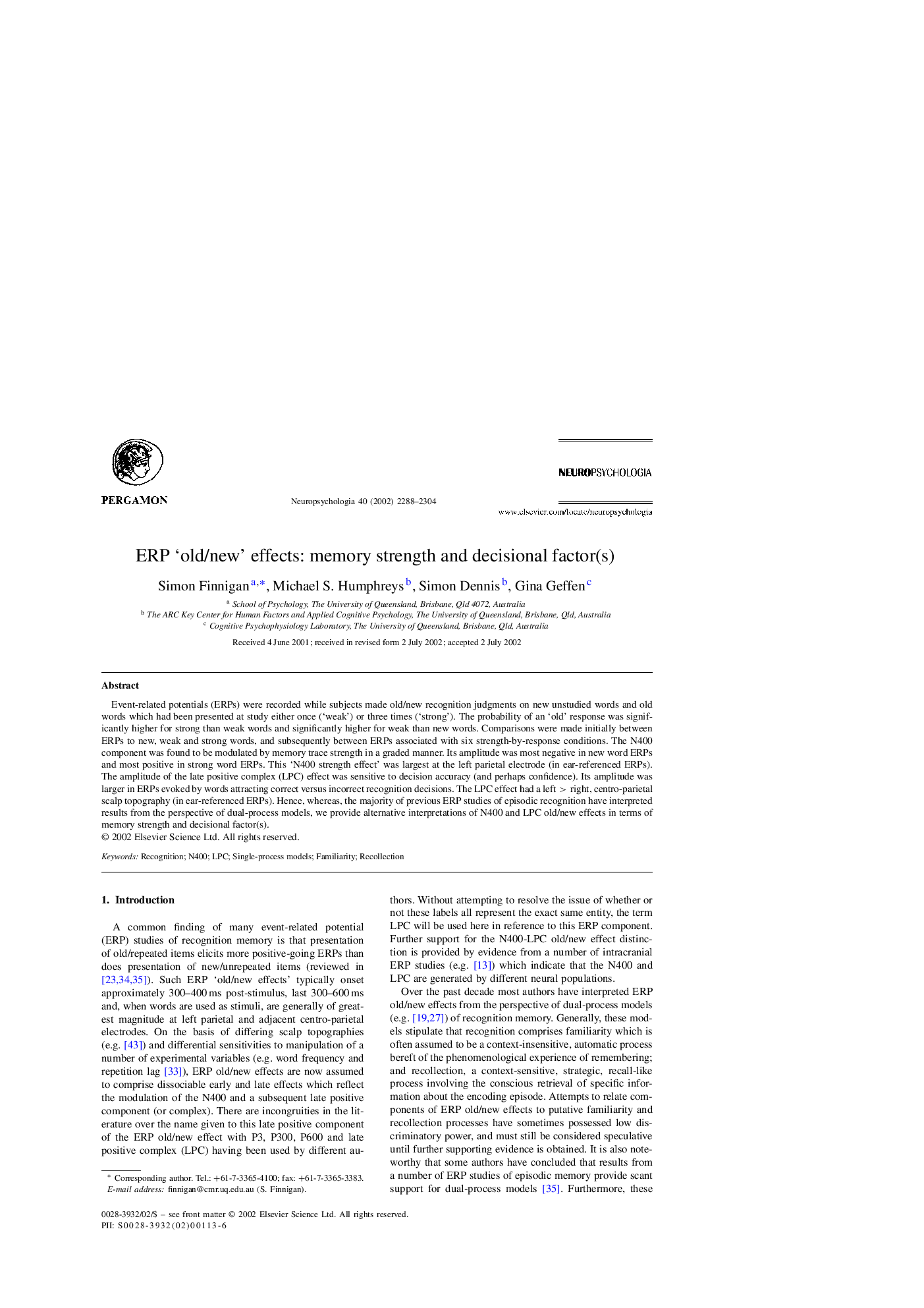| Article ID | Journal | Published Year | Pages | File Type |
|---|---|---|---|---|
| 945991 | Neuropsychologia | 2002 | 17 Pages |
Event-related potentials (ERPs) were recorded while subjects made old/new recognition judgments on new unstudied words and old words which had been presented at study either once (‘weak’) or three times (‘strong’). The probability of an ‘old’ response was significantly higher for strong than weak words and significantly higher for weak than new words. Comparisons were made initially between ERPs to new, weak and strong words, and subsequently between ERPs associated with six strength-by-response conditions. The N400 component was found to be modulated by memory trace strength in a graded manner. Its amplitude was most negative in new word ERPs and most positive in strong word ERPs. This ‘N400 strength effect’ was largest at the left parietal electrode (in ear-referenced ERPs). The amplitude of the late positive complex (LPC) effect was sensitive to decision accuracy (and perhaps confidence). Its amplitude was larger in ERPs evoked by words attracting correct versus incorrect recognition decisions. The LPC effect had a left>right, centro-parietal scalp topography (in ear-referenced ERPs). Hence, whereas, the majority of previous ERP studies of episodic recognition have interpreted results from the perspective of dual-process models, we provide alternative interpretations of N400 and LPC old/new effects in terms of memory strength and decisional factor(s).
